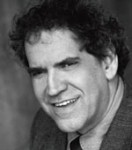By Rabbi Michael Leo Samuel

CHULA VISTA, California– Some of you may think that today’s lesson on forgiveness will be a little boring. If so, I ask that you please forgive me. Just like a picture says more than a thousand words, parables, too, also convey lessons that are timeless as they are obvious, requiring no further explanation.
Here’s an anonymous Hassidic tale:
Once long ago, in the Hassidic village of Meseritz, there lived a long thin baker named Jacob—a righteous man, with a long thin chin and a long thin nose. Jacob was so upright that he seemed to spray morality from his thin lips over everyone who came near him; so the people of Meseritz preferred to stay away.
Jacob’s wife, Rachel, was beautiful and stunning. Everyone wanted to be in her soft and radiant presence.
Rachel loved Jacob her husband, too, as much as he allowed her; but her heart yearned for human affection and attention, for her husband Jacob was too busy studying Talmud or praying.
And from this seed of sadness and loneliness, she strayed.
One early morning, having worked all night long in the bakery, Jacob came home and found a stranger in his bedroom lying in Rachel’s arms.
Soon Rachel became the gossip of the town; as everyone whispered her name with contempt and shock.
Everyone assumed that Jacob would quickly divorce Rachel, for after all, he was a righteous man. But to everyone’s surprise, Jacob remained committed in his relationship to Rachel, and said that forgave her as the biblical prophet Hosea forgave his wife for straying.
But in his heart of hearts, however, Jacob could not forgive Rachel for bringing shame to his name, nor could he forget. Whenever he thought about her, his feelings toward her were angry and hard; he despised her as if she were a common whore. When it came right down to it, he hated her for betraying him after he had been so good and so faithful a husband to her.
Jacob only “pretended” to “forgive” Rachel so that he could punish her with his righteous mercy.
But Jacob’s hypocrisy did not sit well in Heaven.
The Kabbalah teaches, “As above, so below.” God orchestrates the powers of transformation and growth in the universe based on our actions.
So each time Jacob felt contempt toward Rachel, an angel came to him and dropped a tiny pebble, hardly the size of a pebble, into Jacob’s heart. Each time a pebble dropped, Jacob would feel a stab of pain like the pain he felt the moment he discovered Rachel’s infidelity.
Thus he hated her the more; his hate brought him pain and his pain made him hate.
The pebbles multiplied. And over time, Jacob’s heart grew very heavy; he could barely walk straight without feeling the immense weight of the pebbles, which now felt like boulders. With the weight of them, he looked like bent and broken man. Like Jonah in the Bible, Jacob felt weary from the pain he was carrying; he began praying to the Angel of death.
One night, the angel who dropped the pebbles into his heart, came to and told him how he could be healed of his hurt.
“There is one remedy,” he said, “only one, for the wounded heart. Jacob would need the miracle of the magic eyes. He would need eyes that could look back to the beginning of his hurt and see his Rachel, not as a wife who betrayed him, but rather as a weak woman who needed him.
Only a new way of looking at things through the magic eyes could heal the hurt flowing from the wounds of yesterday.
Jacob protested. “Nothing can change the past,” he said. “Rachel is guilty—a fact that not even an angel can change.”
“Yes, poor hurting man, you are right,” the angel said. “You cannot change the past; you can only heal the hurt that comes to you from the past. And you can heal it only with the vision of the magic eyes.”
“And how can I get your ‘magic eyes’?” pouted Jacob.
“Only ask, desiring as you ask, and they will be given you. And each time you see Rachel through your new eyes; one pebble will be lifted from your aching heart.”
Jacob could not ask at once, for he had grown to love his hatred. But the pain of his heart finally drove him to want and to ask for the magic eyes that the angel had promised.
So he asked. And the angel gave. He began focusing on only her positive qualities and attributes.
Soon Rachel began to change in front of Jacob’s eyes, wonderfully and mysteriously. He began to see her as a needy woman who loved him instead of a wicked woman who had betrayed him. He begins to realize his part, and how his own lack of affection and attention pushed Rachel away. He too, was in need of forgiveness, but of a different kind.
The angel kept his promise; he lifted the pebbles from Jacob’s heart, one by one, though it took a long time to take them all away. Jacob gradually felt his heart grow lighter; he began to walk straight again, and somehow his nose and his chin seemed less thin and sharp than before. He invited Rachel to come into his heart again, and she came, and together they rededicated their lives anew.
*
Rabbi Samuel is spiritual leader of Temple Beth Shalom in Chula Vista. He may be contacted at michael.samuel@sdjewishworld.com